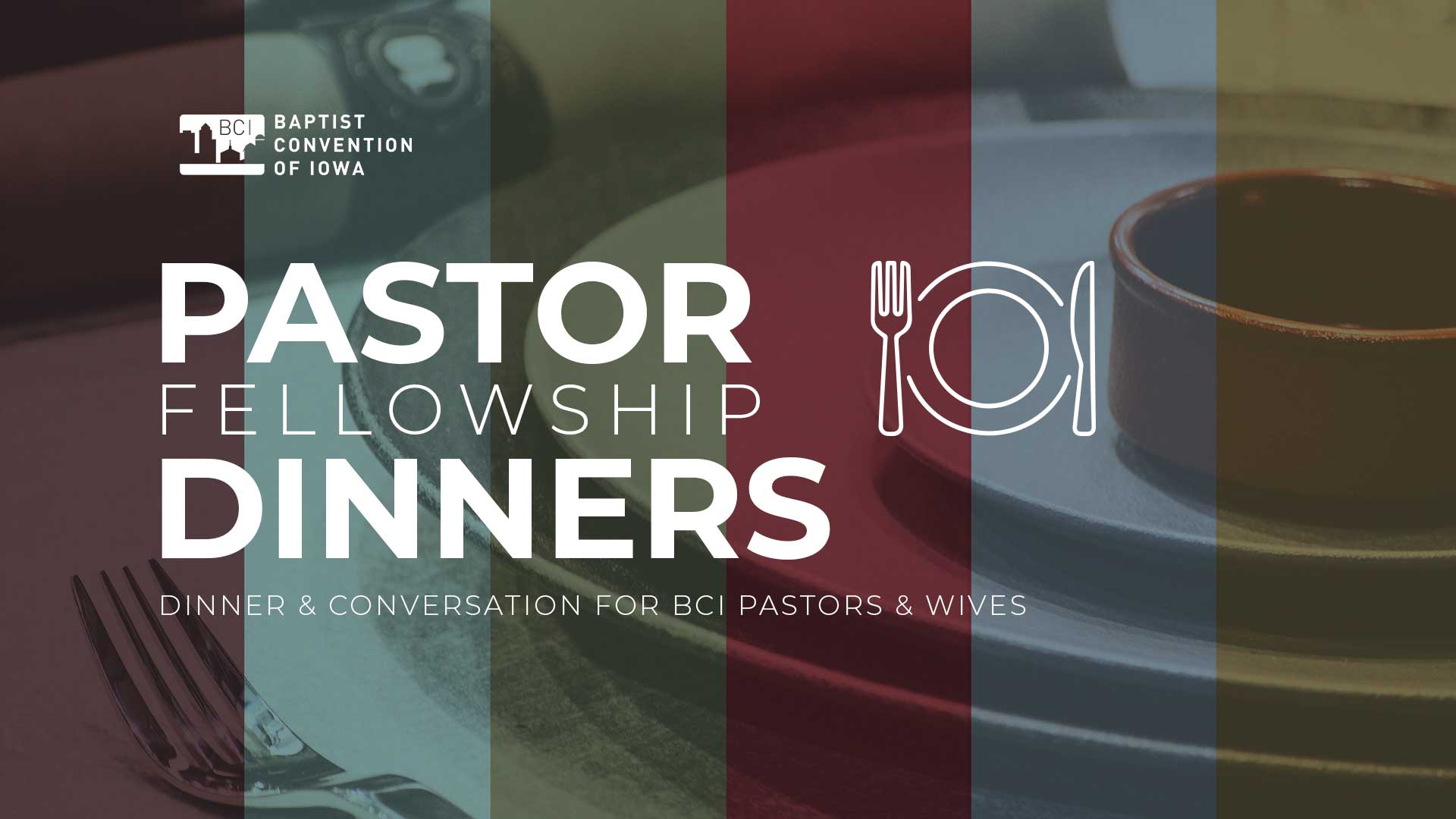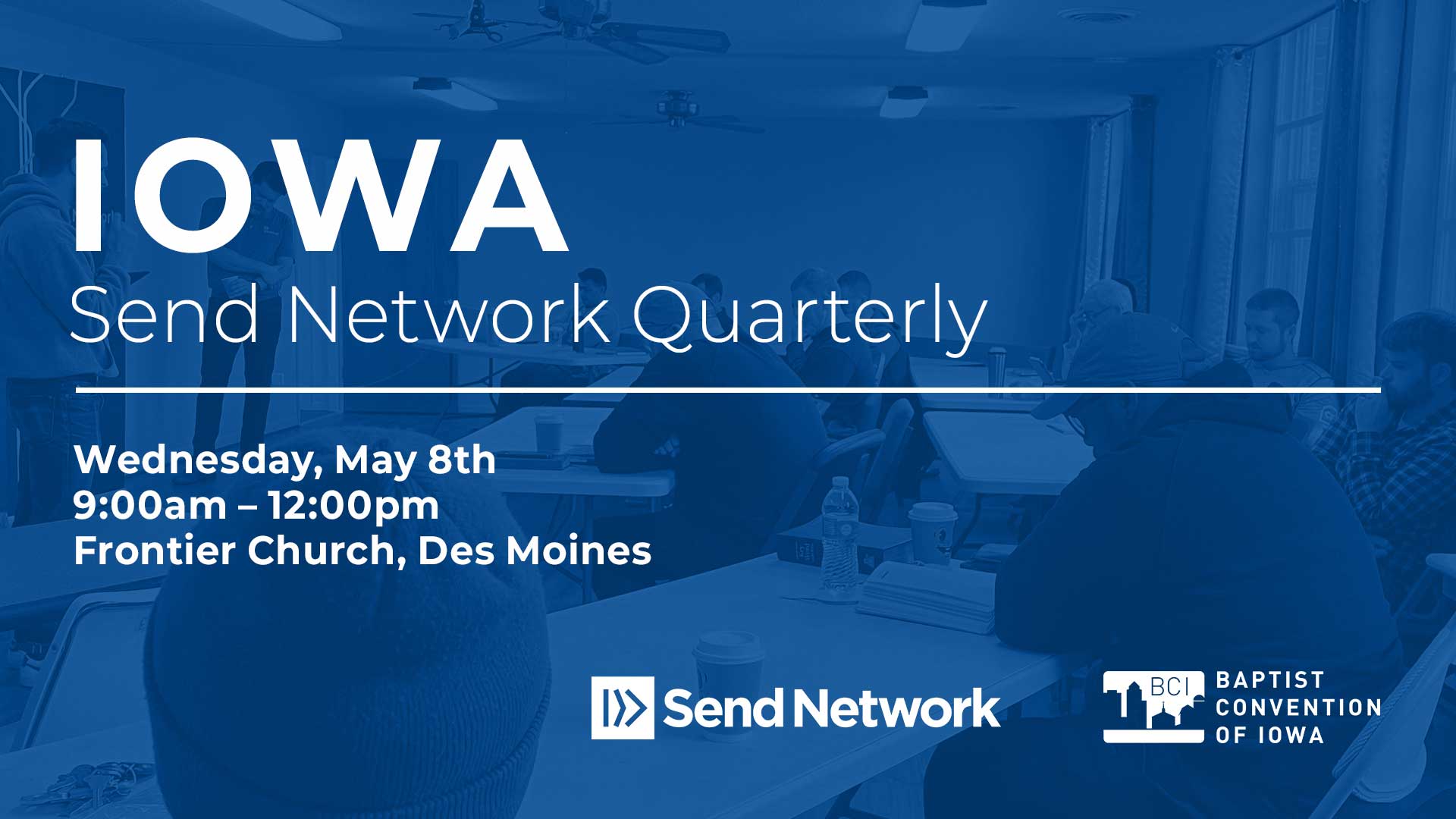By Dave Miller
I can remember driving down the highway in Virginia in a state of depression. I’ve slipped into depression – probably a milder form than many have experienced – two or three times in my life. One was during my first pastorate, back in the late 80s. Every Saturday I’d get a copy of the Richmond newspaper and peruse the help wanted ads to see if there was a way for me to provide for my family if I threw in the towel on ministry. Honestly, if I’d had a fall-back option then I’d probably not be in the ministry today. As I drove down the rural highway in Southside Virginia my mind was walking through the valley of deep darkness that David spoke of in Psalm 23.
I looked at trees in the median and thought I could just swerve the wheel into one of those and the pain would stop.
I never seriously considered turning the wheel, but I had a deep longing for death that was evidence of the hopelessness and despair in my heart.
It was a lie, a lie I was believing, one that insulted the God of heaven and gave glee to the accuser of the brethren. My life was not hopeless, not as long as God was there with me. My feelings deceived me. The situations that I felt were beyond repair have all worked out – some took a short time, some long, but God resolved them. God worked to restore my heart, my joy and my passion for Christ. It is always too early to despair when the Living God of heaven is your Father. By believing the enemy’s lie, I teetered on the edge of spiritual self-destruction. I thank God that he led me through the valley of deepest darkness and back to his light!
I’ve had too many friends and family fall over the precipice and leave the earth by their own hands. My wife’s brother took his own life 30 years ago and the family still grieves today. The toughest funeral I ever did was for one of my deacons, a close friend and pillar of the church, who took this path out of his problems. Just recently, a fellow Iowa pastor ended his own life, leaving a grieving family, a devastated church and a stunned and sorrowful convention. There have been many others through the years. Of course, the Southern Baptist family was rocked yesterday with another such tragedy.
Suicide is the most devastating form of death because of the scars it leaves in the souls of those who are left behind. Could I have done something? Why did I say what I said? Is this my fault? We are left wondering what was going on, obsessing on why this person we loved felt that this was their best option, engaging in self-recrimination and examination of every word, deed and conversation, and feeling guilty – not just a little guilt, but massive, soul-stealing, gut-wrenching, keep-you-up-at-night guilt! Suicide may be an act of physical violence committed against oneself, but it is the most horrendous act of spiritual violence imaginable against family and friends. It leaves hearts bleeding, spirits broken and souls wounded.
And the worst part of it is that there is little that anyone but the Savior can do to salve these wounds. We can be there to hold up the family. We can express our grief. We can offer what help we can give. But the wounds of suicide are such that we can do little except express unending, indefatigable love and support – for the next decade or two!
A family touched by suicide will never be the same. In 1979 I was in a skiing accident in Eldora, Colorado that left me with permanent injuries. I recovered and have completed marathons, played softball, basketball, soccer and a host of other sports. But the limitations and effects of that injury are always there. If I move or sit a certain way, I can get shudders of pain throughout my body. It’s been 35 years and I’ve lived my life, but the accident on the ski slope left injuries that never fully heal. That is what it is like for a family that has been touched by suicide. Perhaps, in time, they learn to go on with life, to walk and even run. But the pain is always there. Certain triggers will bring a stab of pain regardless of how many years go by. Sweet memories now soured by grief, shame and pain. A sudden burst of guilt and self-condemnation. Questions without answers. The limp of a battered soul.
The victims of suicide (family, friends, etc) will carry those scars as long as they live.
So, what can we do? What can we as Christians, as the church of Jesus Christ, do to help our grieving brothers and sisters, to alleviate their pain? I would make several suggestions. In general, I think the advice given in Todd Benkert’s excellent post on dealing with cancer victims applies here – both the positive and the negative. I would give the following as suggestions for helping people who are going through this kind of tragedy.
Thoughts on Helping Victims of Suicide
1) Pray. Then pray again. Then some more. Don’t just say, “I’m praying for you.” Actually do it. Keep praying for about 25 years.
The promise of prayer is too often trite and empty, or even a lie. But prayer is our greatest resource in the moment of grief. I cannot heal the hurting but my God can. He is the Great Physician, the Balm of Gilead, the God of all comfort. We can go to him on behalf of a family member or friend and the fervent, faithful prayers of the Body of Christ help. We can pray comfort for the grieving; pray that God’s presence will surround them and sustain them.
2) Be present.
If you call someone “Job’s friend” it is not a compliment. The friends of Job tried to make sense of his suffering and did so in a petty, theologically shallow and ineffective way. But what we often forget is that before they were horrible friends they were the best friends ever. They sat in silence with Job on the ash heap for 7 days. They were there. They were present. It was when they opened their mouths that they lost their place as the greatest comforters ever.
The greatest gift you can give is your continued friendship, your presence in the wounded life. It is a blessing to sit with a person the day of the death or to be there for the funeral. But in the days and weeks thereafter – that is when true friendship is needed. You become God’s physical therapist to help the hurting work through the healing process. Through your love, patience, fellowship and consistent friendship, God’s healing takes place.
Be there, not just for the short term, but for the long haul.
3) Cierra la Boca.
Keep your mouth shut! Job’s friends blew it by talking.
Of course, I’m not advocating actual silence. I’m just saying that you needn’t say anything witty, insightful, or life-changing in these situations. When you try to communicate something profound, it often comes out as a cliche, or trite, or condescending – it is generally not helpful.
Unless you are the mentor or spiritual authority of the grieving person (and even then, tread lightly) it is not your job to sort all this out and explain the inexplicable. That was Eliphaz, Bildad and Zophar’s mistake. They tried to tell Job exactly why this tragedy came upon him (they were wrong) and how he could make things right (again, they missed the mark). They didn’t understand God’s sovereign plan and were therefore wholly incapable of explaining it to anyone else. They spoke out of ignorance and made Job’s suffering worse.
It is NOT your job to explain the activity, purposes and plans of God in a specific situation. This is not the time for you to test drive your theology on a fragile soul.
When I visit a family that has suffered a tragedy, I generally warn them that they need to be prepared for people who want to help to say incredibly foolish things. There are only three things we need to communicate to a person in grief.
- God loves you and I am praying he will sustain you through this. We do need to hold on to God’s sovereignty and love, but we do not have to understand all its intricacies. No one ever explained all the reasons for God’s actions to Job. He was just called to trust God. The solution is TRUST, not understanding everything. We must trust God even in the darkness when we can’t see where we are going or why he is leading us on this particular path. When you try to be God’s trail guide you do more harm than good. Point them to trust in God, not in your understanding of God’s workings.
- I love you. While I don’t understand all you are going through, I care deeply about you.
- I will be here for you every step of the way. As long as it takes.
Of course, then you have to follow through. Pray and be there. It is your actions, not primarily your words, that will help the suffering.
4) Be patient.
This is going to be a long (lifelong) process. When someone has a sniffle, they snap out of it in a few days. When I had West Nile, it took a few weeks. But this is going to take years to heal, and even then there will still be the spiritual limp. You just have to be patient and faithful as a friend or as a church.
Along the way, don’t be surprised if you hear or see some things that both you. Grieving people can become so overwhelmed they evidence emotional instability and even bizarre behavior. Unless it is extreme (you never take a threat of self-harm lightly) you just weather the storm. People will sometimes even lash out at God. Job did. God can handle it. You don’t need to be the theology police to correct every little thing they say. Just assure them that God is good and faithful. Encourage them to trust God even if they do not understand his works.
When someone you love becomes the victim of suicide, you have a long task in front of you. You cannot cure the wound, but you can be an agent of God’s healing, if you point people to the goodness of God, show your constant and faithful love and endure in this grace.
Dave Miller is senior pastor of Southern Hills Baptist Church in Sioux City, Iowa.
This article originally appeared at SBCvoices.com.






